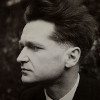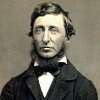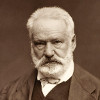“ The wealthy young man has a hundred coarse and brilliant distractions, horse races, hunting, dogs, tobacco, gaming, good repasts, and all the rest of it; occupations for the baser side of the soul, at the expense of the loftier and more delicate sides. The poor young man wins his bread with difficulty; he eats; when he has eaten, he has nothing more but meditation. ”
Victor Hugo, Les Misérables (1862). copy citation
| Author | Victor Hugo |
|---|---|
| Source | Les Misérables |
| Topic | distraction difficulty |
| Date | 1862 |
| Language | English |
| Reference | |
| Note | Translation by Isabel F. Hapgood in 1887 |
| Weblink | http://www.gutenberg.org/files/135/135-h/135-h.htm |
Context
“Poverty in youth, when it succeeds, has this magnificent property about it, that it turns the whole will towards effort, and the whole soul towards aspiration. Poverty instantly lays material life bare and renders it hideous; hence inexpressible bounds towards the ideal life. The wealthy young man has a hundred coarse and brilliant distractions, horse races, hunting, dogs, tobacco, gaming, good repasts, and all the rest of it; occupations for the baser side of the soul, at the expense of the loftier and more delicate sides. The poor young man wins his bread with difficulty; he eats; when he has eaten, he has nothing more but meditation. He goes to the spectacles which God furnishes gratis; he gazes at the sky, space, the stars, flowers, children, the humanity among which he is suffering, the creation amid which he beams. He gazes so much on humanity that he perceives its soul, he gazes upon creation to such an extent that he beholds God.”
source



